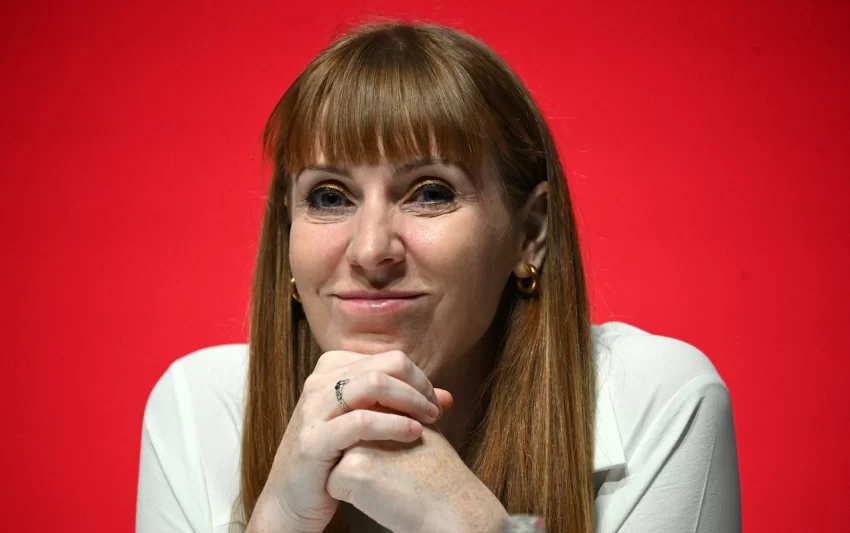Trump’s trade deal is killing this UK bioethanol firm
SALTEND, England — Jordan Spamer and Stacey Monkman live five minutes from the Vivergo Fuels bioethanol plant in Saltend, an estuary town on Yorkshire’s Humber river.
For the past four years, they’ve worked in the firm’s logistics team — tucked away, as they put it, in “a little cabin” on site, “just getting really excited about trucks.”
Normally, the team sees up to 140 lorries a day moving wheat and fuel in and out of the site. But last Friday, the final wheat delivery came and went.
Vivergo’s plant is now at risk of closure due to the U.K.-U.S. trade deal, which allows 1.4 billion liters of tariff-free American ethanol into the British market. It’s a volume Vivergo’s managing director Ben Hackett says is equivalent to the entire U.K. bioethanol market.
Unless ministers intervene, 160 staff at Vivergo — one of only two major bioethanol producers in the U.K. — will lose their jobs from Aug. 18. Thousands more in farming and haulage will also feel the impact.
The general sentiment towards government at Vivergo has been described by its people director Kirsty Hussey as “disappointment, in the sense that [the industry] was overlooked, it wasn’t understood.”
Workers who’d been offered “good salaries” and “the opportunities to learn and grow” are now “concerned about their ability to feed their families,” said Hussey.
Red Wall cracks
The Saltend chemical park is a 10-minute drive from Hull, a once Labour stronghold undergoing political upheaval.
The area has seen rising support for Reform UK, with Luke Campbell, an Olympic boxing gold medalist, sweeping into office as mayor with nearly 50,000 votes in May. His face is now on a mural at his city-center gym, established in 2021, and a gold-painted postbox and phone kiosk celebrates his 2012 victory.

Campbell said that rather than advocating for a bailout, he “would change the clause in Labour’s U.S.-U.K. trade deal, which allows cheap bioethanol fuel to flood into Britain.” The Vivergo site “doesn’t need government subsidy; it’s a profitable business that supports thousands of jobs in the region,” he added.
He described what is happening in Hull as “a political revolution, as people reject the decline of the last 30 years caused by establishment politicians.”
Multiple industries hit
Britain’s bioethanol industry is tied to multiple other industries in the region. It buys wheat from more than 12,000 British farmers, which is carried by lorries, and used to produce fuel for vehicles and high-protein animal feed.
“This place can take a million tonnes of U.K. wheat each year,” said Jamie Burrows, National Farmers’ Union Crops Board Chair and a farmer in Norfolk.
“If you take that demand away, [wheat would] probably be between 15 and 20 pounds a tonne less,” he added. Farmers in the region — still furious about Chancellor Rachel Reeves’ changes to inheritance tax and national insurance — would be forced to export more, facing weaker prices on the European market.
Haulage firms are also affected. Mike Green, who runs Aghaul Limited in North Lincolnshire, said business is already slowing.
“This facility would take grain all year round,” he said. “The plant can process about 1.1 million tonnes a year, and we get heavily involved in that movement, so the impact of that closure is going to be quite widespread. I’m going to have to start potentially looking to diversify the business, there might be possible redundancies.”
Vivergo’s closure would be the latest in a line of potential industry shutdowns within driving distance of the plant. Forty-five minutes away just on the other side of the river, Lindsey Oil Refinery near Immingham has halted production, threatening 420 jobs. Roughly an hour in the other direction, British Steel in Scunthorpe narrowly avoided collapse in April after emergency government intervention.
“This is a fantastic facility supporting a huge portion of U.K. agriculture,” said Green. “There’s a lot of downbeat people. I [have] a tear in my eye that it’s another part of the job that’s going and could go forever.”

Green said he didn’t vote in the most recent elections and describes the area in the region as having a “distrust in politics at the moment, particularly with the Labour government.”
What comes next?
Vivergo Managing Director Ben Hackett said the company is still in discussions with the government, which has appointed Teneo as a strategic adviser on the case.
The firm has requested temporary financial support to offset the impact of the U.S. trade deal and an improved regulatory framework that supports the domestic bioethanol industry.
Hackett describes the situation as “at a T-Junction.” “You go one way, and it’s redundancies, it’s decline, it’s stagnation,” he said. “You go the other way and it’s growth, it’s investment, it’s jobs, it’s prosperity.”
A British government spokesperson said: “We recognise this is a concerning time for workers and their families which is why we entered into negotiations with the company on potential financial support last month.”
They added: “We will continue to take proactive steps to address the long-standing challenges the company faces and remain committed to working closely with them throughout this period to present a plan for a way forward that protects supply chains, jobs and livelihoods.”
‘I watched it get built’
The company was also expecting a £1.25 billion investment from Meld Energy, to supply feedstock for a new sustainable aviation fuel plant at Saltend, which is now on hold until the government makes the decision.
Dean Brown, who supervises plant operations at Vivergo, has worked there for 15 years, having joined when he was 25 years old as a technician.
“Before coming to Vivergo, I watched it get built,” he said. “I actually pestered the production manager for a good year as they were building the plant, to let me know when this job’s coming up. I want to be part of this, I want to be part of the greener energy and bioethanol future.”

He described the job as “life changing” for him and his family, including his two teenage daughters. He pointed to his computer screen, showing a picture of his daughters catching a giant fish in a Thai river. He said that would have never happened without the job.
Production manager Nick Smalley commutes an hour and a half to work every day “because he loves it so much.”
“I’m a father, I’m a son, a husband, I have a family that depend on me,” he said. “For me to think about losing my job, it’s really hard to swallow.”
Smalley said the government made an “off the cuff decision” with the U.S. — speaking personally, he finds it “hard to trust politicians, given recent events.”
“But we have to trust people and hope they understand our plight, and the benefit we bring to the U.K. economy,” he said. “We’re here to fight to the bitter end — everybody here will do whatever it takes to make this business successful.”




















:quality(85):upscale()/2023/09/18/918/n/1922398/a1136b676508baddc752f5.20098216_.jpg)
:quality(85):upscale()/2025/10/09/670/n/1922283/00b944c868e7cf4f7b79b3.95741067_.jpg)
:quality(85):upscale()/2025/10/15/765/n/1922398/29c37a6e68efd84bb02f35.49541188_.jpg)
:quality(85):upscale()/2025/09/09/891/n/1922283/7222624268c08ccba1c9a3.01436482_.png)
















